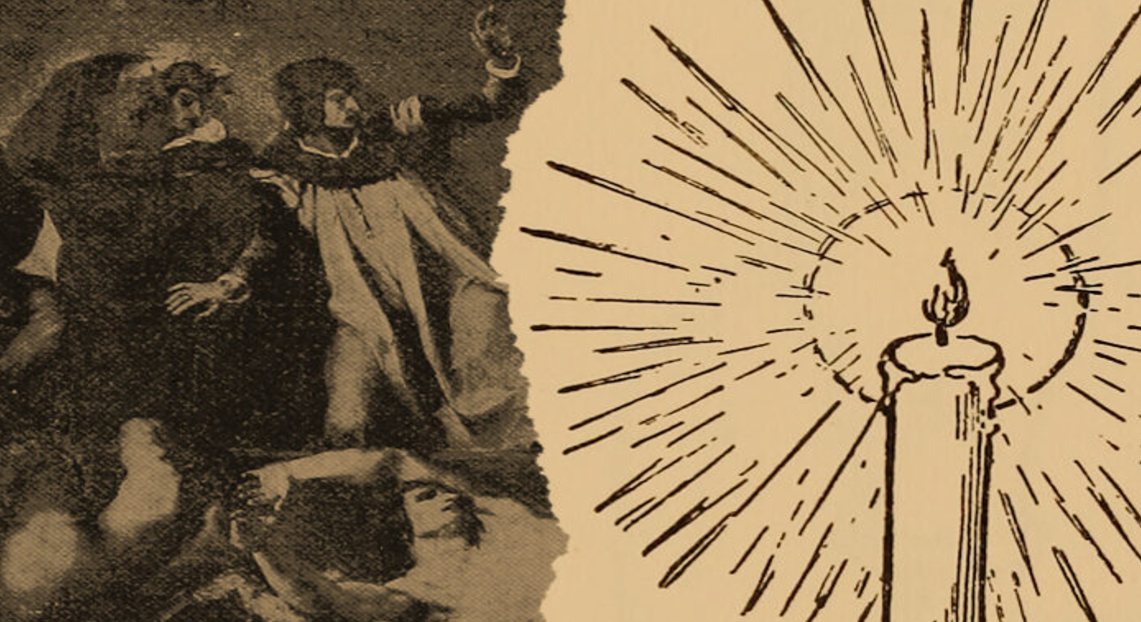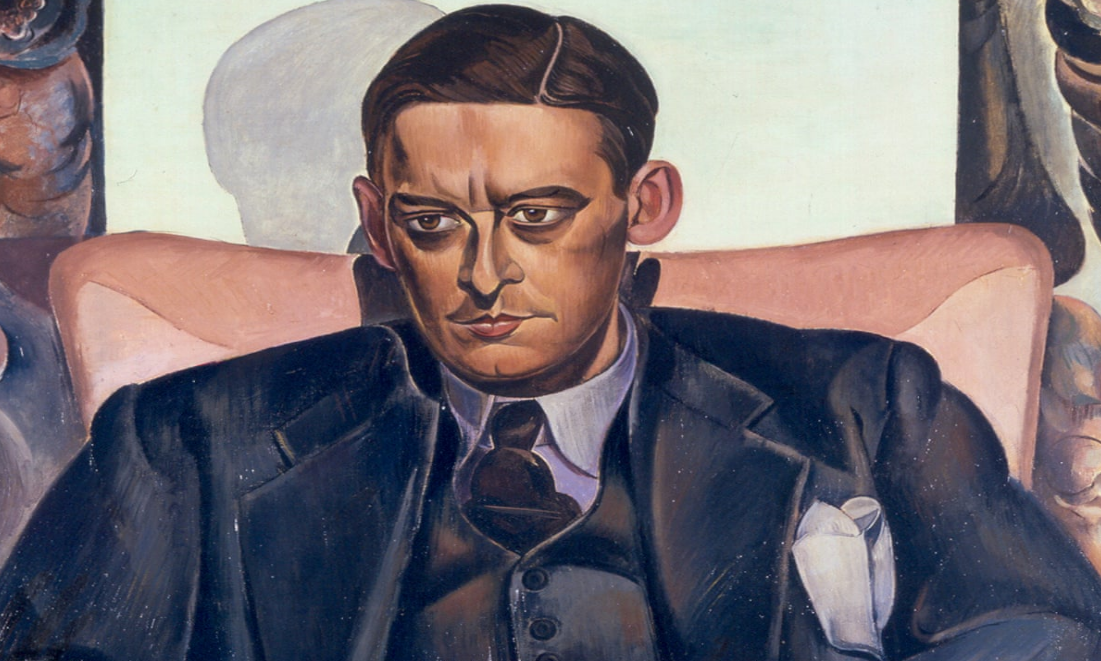By Katerina Taxiaropoulou,
As one can infer from the title of the poem, the speaker is J. Alfred Prufrock, a prototypical modern man: educated, eloquent, a thinker, one would say, but at the same time neurotic, moody and emotionally stilted. He lives the urban life, he is isolated, yet at the same time, he does not lack sensitivity. It could be claimed that Prufrock is an unacknowledged poet, a sort of artist for the common man. In this poem, the speaker confesses his thoughts and concerns, his obsessions, as the content of this dramatic monologue has also been referred to, to an ideal listener, someone as lost as himself, Dante that is, and also someone who cannot reveal to the world what he has heard, as he is thought unable to return to the world in order to report it.
Simultaneously, he is addressing a hypothetical lover, a woman. So, in what someone in drama would call a soliloquy, Prufrock here relates to the idea of love. Yet, the poem is not an absolute love song. Through his reflection on love and his difficulty in attempting romantic relationships, the speaker explores other issues of life, like the pointless aspects of socializing, deferral and inhibition, the fear of mortality, loneliness as the result of the inability to be understood and most importantly, he reflects on himself as an artist, as well as on art and its power in the modern world.
Early on in the poem, he indirectly comments on the emptiness of socializing, a stance that reveals his state of isolation and his quiet and retrained nature. For him, socializing, that is meeting new people, among them potential lovers, is “[t]o prepare a face” (l.27), like having to wear a disguise, to “murder” one’s true self and “create” another (l.28). With the line “And time for all the works and days of hands”, he makes a comparison between the useful agricultural labor and the futile social gesturing (l. 29). Also, the constant reference to “toast[s] and tee[s]” (l. 34), to “cakes and ices” (l.79) and to “novels after the teacups, after the skirts that trail along the floor” (ll.102-103), that is the reference to the activities that take place in social gatherings, hints at the speaker’s doubt over their meaning.

Another issue that the speaker touches upon, which is more overtly related to the theme of love, is deferral and inhibition. While expressing his difficulty in approaching women and trying a romantic association with them, Prufrock also reflects on the fear of taking risks and actually making use of one’s time. By repeating again and again the phrase “there will be time” (ll. 26,28, 37), as well as the phrase “[d]o I dare?” (ll. 38, 45), the speaker underlines his lack of self-confidence in making a step and his tendency to postpone everything by making “a hundred visions and revisions” (l.32). In the couplet “In the room the women come and go/Talking of Michelangelo” (ll. 35-36), which also functions as a refrain here, Eliot describes the consciousness of the modern, neurotic individual. In addition to that, the line “And how should I presume?” which is repeated (ll.54, 61, 68), indicates this buildup of fear, inhibition and self-doubt that the isolated and reserved speaker is experiencing in a social context.
It is this avoidance of taking risks, either in love life or in other aspects of life that paves the way for the next concern to be expressed, that of the fear of mortality: “I have seen the moment of my greatness flicker/And I have seen the eternal Footman hold my coat, and snicker, / And in short, I was afraid.” (ll. 84-86). The comma in the last line helps highlight the fear the speaker feels when realizing or thinking of his mortality. This thought makes him question the point of attempting a romantic relationship with a woman and of socializing in general, and thus he repeats the question “[a]nd would it be worth it, after all” (ll. 87, 99).After all this questioning and attempt at articulating complex thought, the speaker repeatedly concludes: “That is not what I meant at all” (ll.97, 110). This phrase emphasizes the loneliness of the speaker, since cannot be understood.
Last but certainly not least, Prufrock reflects on his occupation as a poet, as well as on the power of art in the modern world in general. In the fifteenth stanza, the speaker devaluates his work by comparing it to Shakespeare and by stating that he is “not Prince Hamlet” (l.11). After this self-degradation though, he characterizes himself “an attendant lord” (l.112), meaning that while he cannot reach Shakespeare’s greatness, he can still “be of use” and contribute something new (l.115). At this point that he has found within himself some self-worth, in an anticlimactic kind of way he takes a massive step backwards, calling himself “ridiculous” and a “Fool” (ll. 118, 119), with a capital F, in believing he can actually contribute and enrich the art of poetry (one can understand he talks about the art of verse by the reference to “progress” and “scene” (l. 112)). As far as Prufrock’s reflection on art is concerned, one should remark the two lines “I should have been a pair of ragged claws, /Scuttling across the floors of silent seas” (ll. 73-74): Here the speaker states that he should be like crabs, which are scavengers, that is, garbage eaters. This could suggest that the role of the modern artist is making something beautiful out of something ugly, just like crabs sustain and nourish themselves on garbage, and therefore that art and more specifically the art of poetry is meant to take inspiration from the modern world and express the sensitivity that has no place in it.

This idea Eliot supports by his deployment of aesthetically not-pleasing images, like that one of “yellow fog” (l.15). After a couple of romantic lines however, with the speaker-poet experiencing the pinnacle of his life, there comes the pessimistic final line “Till human voices wake us, and we drown” (l.131): Here the world, that is reality, seems to intrude and shatter the dream of the poet. With this line, Eliot subverts the romantic notion that only the poetic genius is what is needed for art to triumph over the distructive and impersonal forces of the modern world.
All in all, The Love Song of J. Alfred Prufrock is not just a love song sung by the speaker to his hypothetical lover. The speaking voice touches upon multiple issues concerning his life as well, that is his view on the futility of socialization’s conventions, his inhibition when it comes to taking life risks, his fear of mortality and his opinion of what his place as a poet is, as well as the power of poetry in the modern world in general.
References
- The Love Song of J. Alfred Prufrock. Poetryfoundation.org. Available here
- T.S Eliot. Britannica.com. Available here




